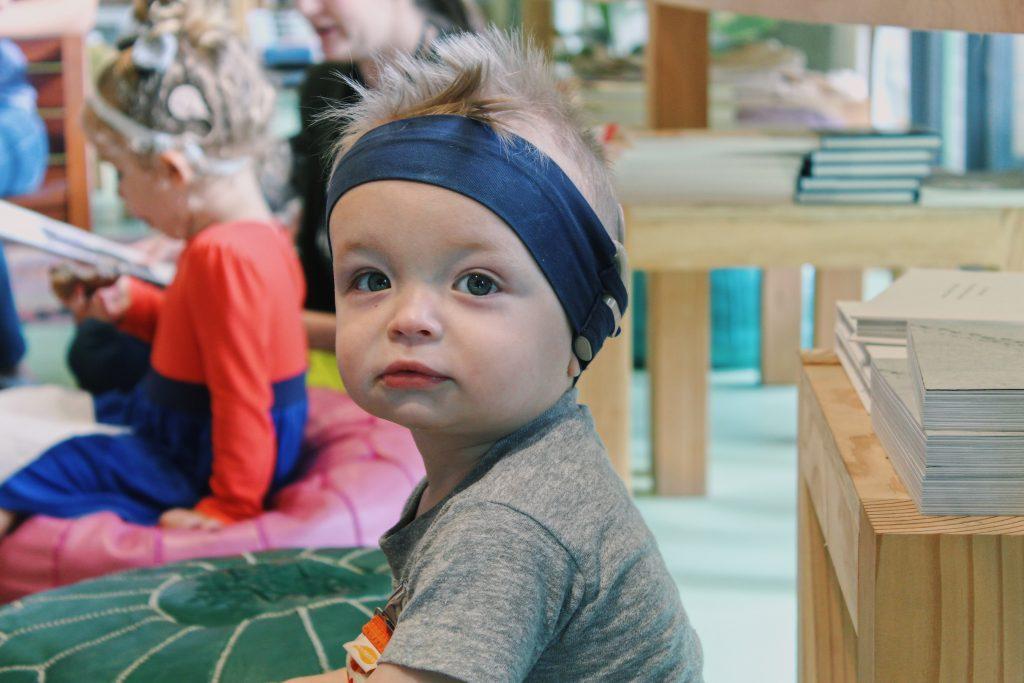“My son failed his newborn hearing screening. Several tests later, at the age of two months, he was diagnosed with bilateral sensorineural hearing loss. Neither my husband nor I had any hearing loss in our families. It was a complete shock,” said Katie Duerfeldt.
After his diagnosis, Ike Duerfeldt was fit with hearing aids and started listening and spoken language therapy at Hearts for Hearing. At eight-months-old, Ike got his cochlear implant in his left ear.
“We were referred to Hearts for Hearing and it was best thing that could have happened to us. While their kind words were nice to hear, it was their actions that meant the most. They actively teach me how to care for Ike and hone his skills and show me the progress he is making.”
At sixteen-months-old, Ike can recognize certain words, say words like “mama,” “bye-bye,” and “yeah,” speak in full nonsense sentences, laugh at everything, and dance anytime he hears music.
When asked what advice she would give to a parent whose child has been diagnosed with hearing loss, Katie said:
“1. Be emotional. It’s tough in the beginning to process what is happening. Your fears of the unknown will almost certainly take over. Give yourself permission to feel all those feelings, good and bad.
2. Find support. Find people to be on your team and your child’s team. This is probably new and uncharted territory for you and your family, and you will need help. Seek out healthcare workers and other parents going through a similar situation, join online support groups, include family in your journey, find anyone who can add positivity and value to your experience.
3. Be a sponge. The learning curve can be steep. You start the journey knowing very little (or nothing!), so listen to everything thrown at you, do your research, and soak it all up. The more you know, the less you fear.
4. Set high expectations. Kids will rise and meet the expectations you set for them, so be sure to set your expectations high. Be sure any caretakers also have those same high expectations.
5. Always ask ‘What’s next?’ Be your child’s advocate. Keep the process moving forward.”





